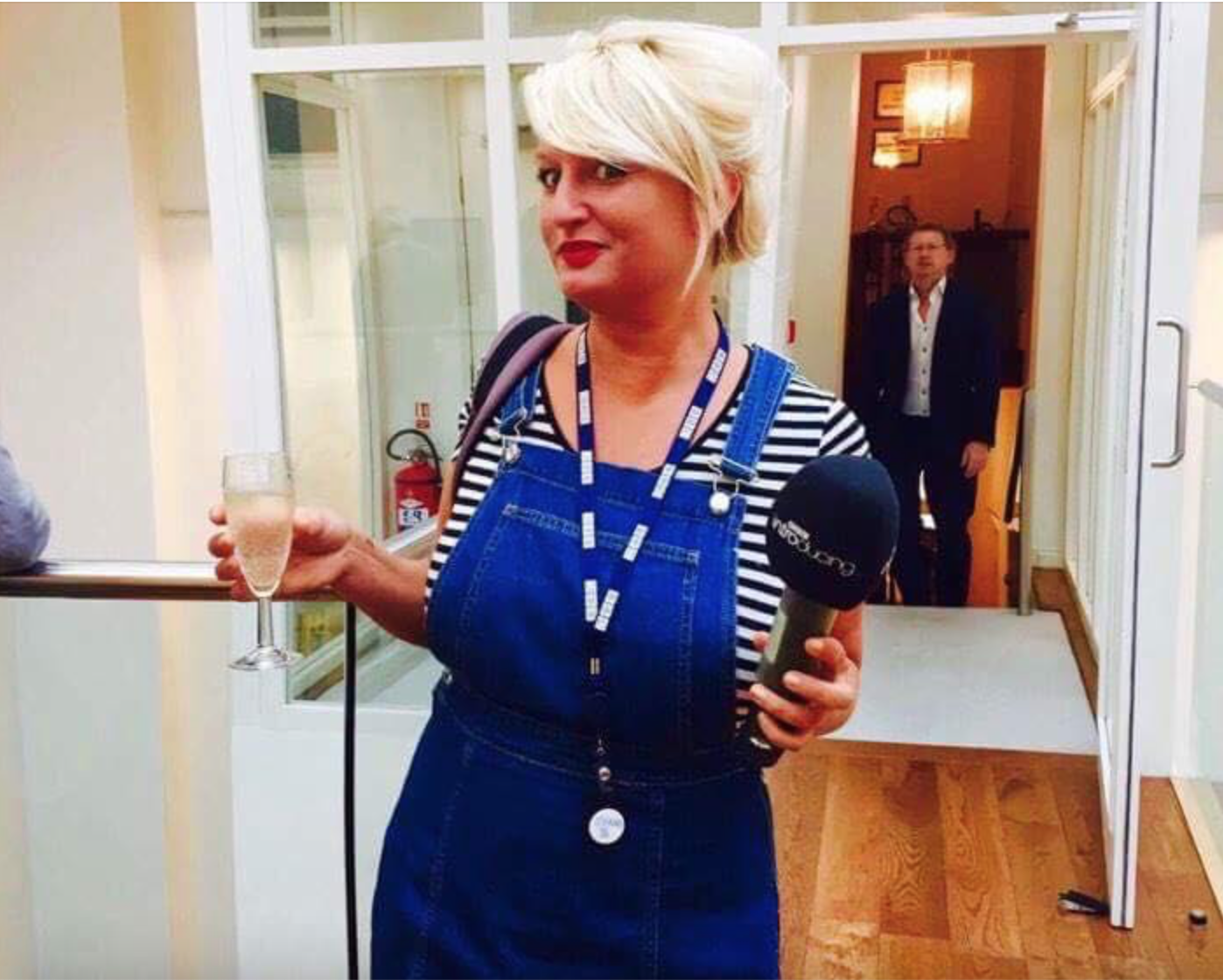Journey to the Heart of the Blues with Carrie Cooper
Carrie Cooper is a freelance radio broadcaster, journalist and presenter. A talented story-teller who brings honest, inspiring conversation to our airwaves, Carrie loves radio as a means of bringing people closer together, no scale too large or small. With a particular story to tell in mind, Carrie applied for an ArtHouse Jersey Seed Funding grant.
With financial assistance from this grant, along with funds from the BBC and Carrie's own personal contribution, Carrie travelled to the States as she set out to make 'Journey to the Heart of the Blues.'The documentary brings to life real stories of the blues as Carrie accompanies Jerseyman, musician Giles Robson to the American Blues Foundation where he was nominated for two Blues Foundation Awards.
During her trip, she also captures conversations with innovators, pioneers & legends through the epicenters of the genre; Chicago, Memphis & Clarksdale Mississippi.With the recent launch of the documentary on BBC Jersey, we asked Carrie a few questions about her work and what inspires her to keep doing what she does
How did you get started in in radio broadcasting?
I started nearly 20 years ago while living in southern Spain. A friend an I produced and presented an electronic music programme, primarily deep house with flecks of techno & breaks. We were unusual in that we didn’t ask radio stations to give us a ‘job.’ Rather, we bought airtime, in this instance Friday nights 9pm until midnight, with the support of sponsors. We started at Kiss FM, soon moving to Global Radio where I was offered my own programme during the week. I wasn’t comfortable in those early days of presenting during the day. The only thing I felt mildly relaxed talking about was music, so campaigned to be moved to the evening show from 9pm– midnight every day and delivered an alternative music show every weekday for many years, our electronic show bubbling away on Saturdays. I moved back to Jersey in 2005 – supposedly for a year - and started with the BBC. I must have been having a good time because I stayed for 8 years. I now work freelance between Bordeaux, Jersey & wherever I’m travelling at the time.How do you work and what is a typical day like for you?
As a freelancer there is no typical day. When I’m home it’s a mix of writing and recording my voice, and this work can be mobile too, should your mic be a high enough quality (and it helps if your partner is an audio master…). When freelancing for the BBC I cover almost everything on the output, breakfast, mid morning, afternoons, drive, presenting, producing, reporting, politics, community, faith. Whatever’s required at the time. I love the variety of topics and the chance to work closely with different people all the time. As a freelancer the key to your work is being bright, willing & as flexible as possible. Juggling homes, shifts, jobs can be tight at times, but essentially the rewards work very well for me. When creating longer pieces of radio I’m forever developing new processes and systems for myself. It is far from an exact formula as yet.How has Jersey shaped you as an artist?
Young Jersey people, myself included years ago, can have a tendency to be a little down on the island, perhaps somewhat resentful that we didn’t grow up surrounded by the apparent opportunities presented by a metropolis. But as time goes on we begin to accept we have, in many ways, won the residency lottery. The fact that we will always have a home in this beautiful, clean, safe, inspiring haven, this little piece of broken off France with such a rich cultural heritage and varying biodiversity, can only enable us to create better things. When we stop regarding the island as a barrier and embrace it as the highly valuable asset and resource it is, whether we live in it full time or not, the bigger and more possible the world & our own work becomes.How has an ArtHouse Jersey Seed Funding grant helped you?
Despite having created audio content for nearly 20 years I had been considering studying radio documentary making this year, even potentially a Masters. But when the opportunity to go to the USA came about and the Seed Funding deadline appeared it felt it would have been ridiculous to not try and knit those together. And so, with commitment and support from the BBC, I applied for the additional funding I’d need. Filling out the application felt completely straight forward and I’m so pleased it was received as openly as it was (thanks to the board!). I would say to people who are thinking of applying for Seed Funding (or any grant), if it rolls out of your mind on to the screen / camera with ease you’re most likely on to something. If you’re trying to sell it to yourself while applying maybe take some more time to solidify your objectives internally. Seed Funding secured through ArtHouse Jersey essentially enabled a locally connected story that deserves to be told, to be told. The grant has also helped bring forth a new, exciting chapter of possibilities for my work.What inspires you?
People. Just love ‘em.What do you love most about radio broadcasting?
It’s an age old cliché but it’s the 'mind pictures' concept. That thousands of different people can be hearing exactly the same thing but their minds each create entirely unique pictures and images to play alongside what they hear. How sound fires up imagination, I guess.What have you been most proud of achieving in your career so far?
There are many sweet, poignant or star studded interviews over the years I could mention here, but one thing alone wouldn’t be enough. I’m not a person who things come easily to. I need to work hard for it and, as we all know, it takes a very long time to become any good at anything. So rather than one particular achievement, I would say I feel proudest of my commitment and perseverance to one craft. I could have taken many very routes for very different looking pay cheques but deep down I know spiritually I’d be an absolute nightmare (even more so than now!). I still feel I’m very much at the beginning of my career, and I’m proud to be able to say I feel excited about that.If you could give a piece of advice to an aspiring radio broadcaster what would it be?
Ha, there are a million people I’d ask for advice before coming to me, but from my humble experience there are many ways to become and remain a broadcaster. As as well as your initial broadcasting day job, be sure to remain close to your real passions. A magic day will most likely come when you can marry your media knowledge with your life passions and be a legitimate communicator of your chosen topic. You just have to try and recognise opportunity and, as someone said to me recently, possess the right amount of considered audacity (or ******* cheek). Know your voice is always enough and be open to finding new aspects to your voice (in every sense). And finally don’t take it all too seriously. Its only radio, people love people. Remember to have fun. The world responds well to those who truly know how to have fun.What do you hope for audiences to feel when they engage with your work?
Well its early in my long-form speech radio days, but essentially I hope people feel they’ve made a friend and that their time has been well spent. If someone has to say “I’ll never get those two hours back!” I’m in the wrong field. I’m an expert in nothing but a keen student of everything, an openness I hope to bring to making radio. I hope the listener feels me take their hand & bring them along with me as we discover new things together.Question is, where shall we take a Journey to the Heart of next….?
Journey to the Heart of the Blues comes out on BBC radio across the Channel Islands on Saturday 14th September 2019 at 8pm and will be available on the BBC iPlayer for one month.






